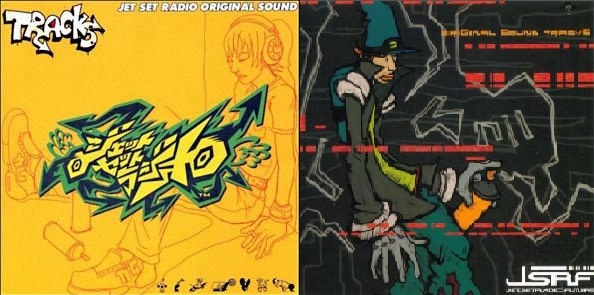Hideki Naganuma- Jet Set Radio's True DJ
By Daneian 4 Comments

Hideki Naganuma is a producer who has earned an impressive amount of respect and professional accolades. Hit play below.
The above track is 'Let Mom Sleep', the opening of Jet Set Radio's soundtrack. Many people who played a Dreamcast remember tearing up JSR's streets to funky beats that added electricity to the gameplay and authenticity to it's alt-lifestyle and urban youth rebellion stylings. It helped to make that game lively and fluid, colorful and fun. It's simply amazing.
Combining hip-hop, soul and funk, every track from that game offered something different. Here's 'Sweet Soul Brother', track eight.
It's energetic without sloppy, passionate without sappy. It also is absolutely repetitious, but, a testament to his ability, never once becomes boring.
Jet Set Radio Future's soundtrack is just as good, a remarkable feat considering that much of its aesthetic sensibility and sound were different from it's predecessor. Less hip-hop and more techno, Future's soundtrack fit well with the faster paced gameplay provided by the more powerful XBox.
In harmony with the deviation in sounds, Naganuma cultivated a music philosophy that produced tracks that revolve around single themes by mixing lyrics that impress a cohesion within while deftly avoiding much of the problems that lyrically driven compositions. Structurally, when an artist puts lyrics into a song, that instrumentation needs to break or subdue so it neither interferes with, nor is drowned out by, the words. They tend to be poetry overlaid onto instrumentation. By creating samples that only relate in the larger context, they become both music and concept.
Listen to the track below, 'Funky Dealer', the third on the album.
It's a theme, not a dialogue, a large part of its appeal. His composition's successfully sidestep the two distinctly different styles of music which compete on a psychological level- that of the mathematically-based music's ability to generate pure emotion and the much more conceptual and reflective nature of story.
Think of the love song. They are often narratives that discuss love in explicit terms of celebration or mourning as the singer relays a progression of linear events. Now here's what Naganuma did with Future's first track, 'The Concept of Love'.
It's flexible enough to let the listener define what they bring into the experience while dealing with a concise topic.
Naganuma has gone on to do other works since these two releases but since Sonic Rush on the Nintendo DS, which followed both of them up, hasn't put much out with as much charge and creativity.
Here's to hoping he does.
